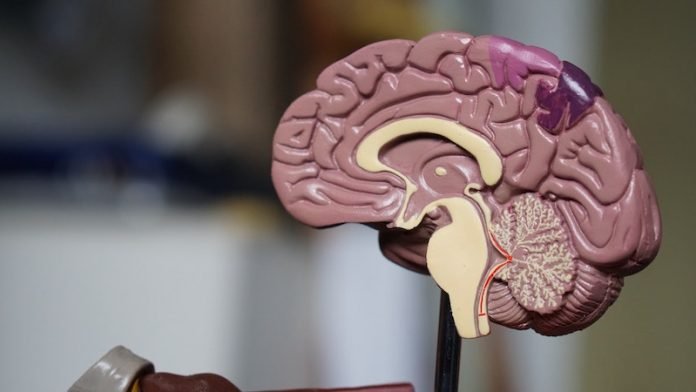
Alzheimer’s disease is known for its slow attack on neurons crucial to memory and cognition.
But why are these particular neurons in aging brains so susceptible to the disease’s ravages, while others remain resilient?
In a new study from the Yale School of Medicine, researchers found that susceptible neurons in the prefrontal cortex develop a “leak” in calcium storage with advancing age.
This disruption of calcium storage in turn leads to the accumulation of phosphorylated, or modified, tau proteins which cause the neurofibrillary tangles in the brain that are a hallmark of Alzheimer’s.
The findings suggest that altered calcium signaling with advancing age is linked to early-stage tau pathology in the neurons that subserve higher cognition.
The team says these vulnerable neurons face another problem.
As they age, they tend to lose a key regulator of calcium signaling, a protein called calbindin, which protects neurons from calcium overload, and is abundant in the neurons of younger individuals.
Neurons in the prefrontal cortex require relatively high levels of calcium to perform their cognitive operations, but the calcium must be tightly regulated.
However, as regulation is lost with increasing age, neurons become susceptible to tau pathology and degeneration. Essentially, neurons “eat” themselves from within.
Understanding these early pathological changes may provide strategies to slow or prevent disease progression.
If you care about Alzheimer’s disease, please read studies about your body clock strongly linked to your risk of Alzheimer’s disease risk and findings of a new cause of Alzheimer’s disease.
For more information about Alzheimer’s disease and dementia treatment, please see recent studies about a new way to restore cognitive function in the elderly and results showing that these two things in your diet may help reduce cognitive decline.
The study is published in Alzheimer’s & Dementia. One author of the study is Professor Amy Arnsten.
Copyright © 2021 Knowridge Science Report. All rights reserved.



